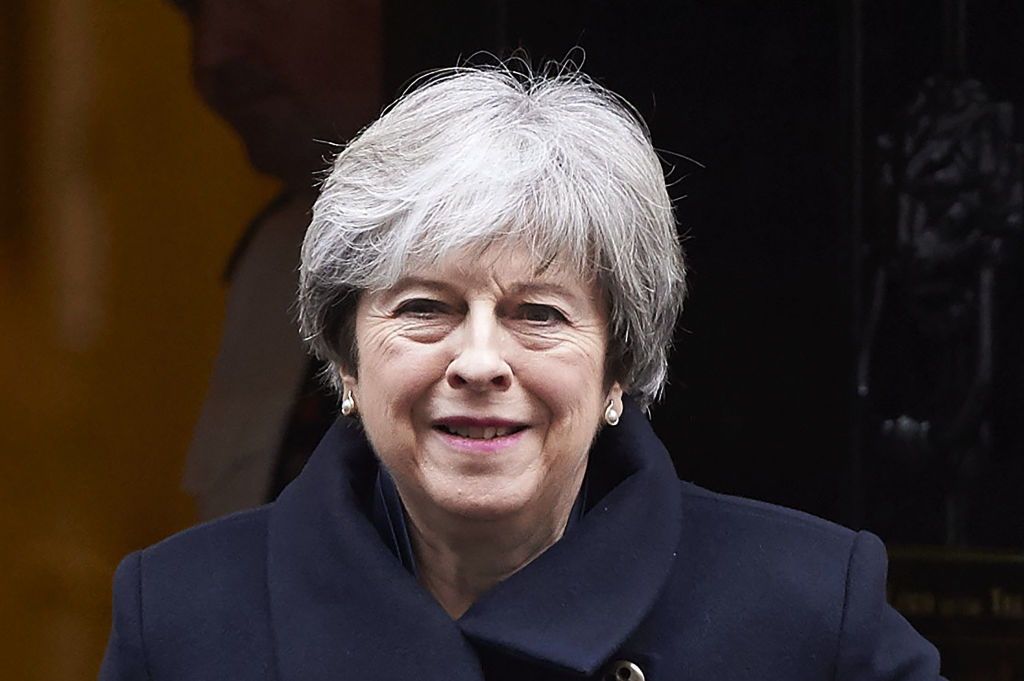Damian Green was Theresa May’s closest ally in government and his departure makes life even trickier for the embattled Prime Minister. Yet while Green’s sacking caps off a dreadful 2017 for the PM, still May survives. ‘In an otherwise traumatic year’, says the Guardian, ‘that probably counts as a success.’ So how has May managed to cling on?
The Guardian says May owes her survival to the lack of a viable alternative within the Tory ranks. What’s more, it’s worth remembering that those who would seek to replace the PM – Philip Hammond, Boris Johnson and David Davis, for instance – have hardly had the best of years themselves. The Guardian also gives another reason for the PM’s ability to endure: her status among ‘those who matter’ as ‘the least worst person to be in charge of Brexit’. Whatever her faults, May continues to succeed in straddling her ‘party’s divisions over Brexit’ and ‘any successor would struggle to hold things together better’, according to the Guardian. May has been successful in reassuring ‘Tory remainers’, and she has also managed ’to keep the leavers mostly in line’. It’s also the case that ‘Brussels prefers her to the alternatives.’ Yet for all these pros, the May premiership ‘remains a high-wire balancing act’, says the Guardian. In Parliament yesterday, the PM continued to make ‘wishful claims’ about the type of Brexit deal Britain wants, despite all the signs from the EU that these demands won’t be met. In particular, the government remains stuck in its thinking that a ‘sector-by-sector access deal after Brexit’ will be available. Yet ‘the most the EU will agree to is a free trade deal along Canadian lines,’ says the Guardian, suggesting that the government and Theresa May are in for a reckoning when it comes to Brexit. May should know that ‘saying a thing is so does not make it so, no matter how often you repeat it’. It’s time then for the PM to become a ‘bolder leader than she has been so far’ and have a dose of realism about what Brexit will mean for Britain. ‘As a dire year for Britain ends, there is little sign of that,’ concludes the Guardian.
The Sun meanwhile takes the rare step of praising Michel Barnier. Yesterday, the paper told the EU’s chief negotiator to ‘button it’, but today it uses its editorial to say that it has finally found common territory with Barnier. The Sun says it agrees with him that ‘cutting the Brexit transition to 21 months…seems sensible’. Yet the paper also sounds a note of caution on Barnier’s intentions. ‘This is just Barnier sounding off. Again,’ according to the Sun. Nonetheless, he’s right, argues the paper, and a promise that Britain will be ‘fully liberated’ from the EU by New Year’s Day 2021 sounds like a welcome idea, concludes the Sun.
The Daily Telegraph says Theresa May should use the opportunity presented by Brexit to follow in Donald Trump’s footsteps by proposing a shake-up of the tax system. ‘His tax bill embraces a fundamental principle of Conservatism,’ says the paper, arguing that the new system of lower taxes will benefit both individuals and businesses. It will also help ‘drive a thriving economy’, says the Telegraph. So why doesn’t Britain do the same? The country is, after all, ‘in the process of forging a new identity’ and Britain’s departure from the EU ‘presents us with an opportunity to develop new markets, new jobs, and new businesses’, says the Telegraph. ‘Lower taxes and less regulation must be the keys to that new identity and they must be embraced not reluctantly, but enthusiastically,’ concludes the paper.







Comments